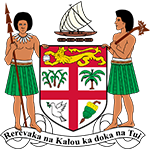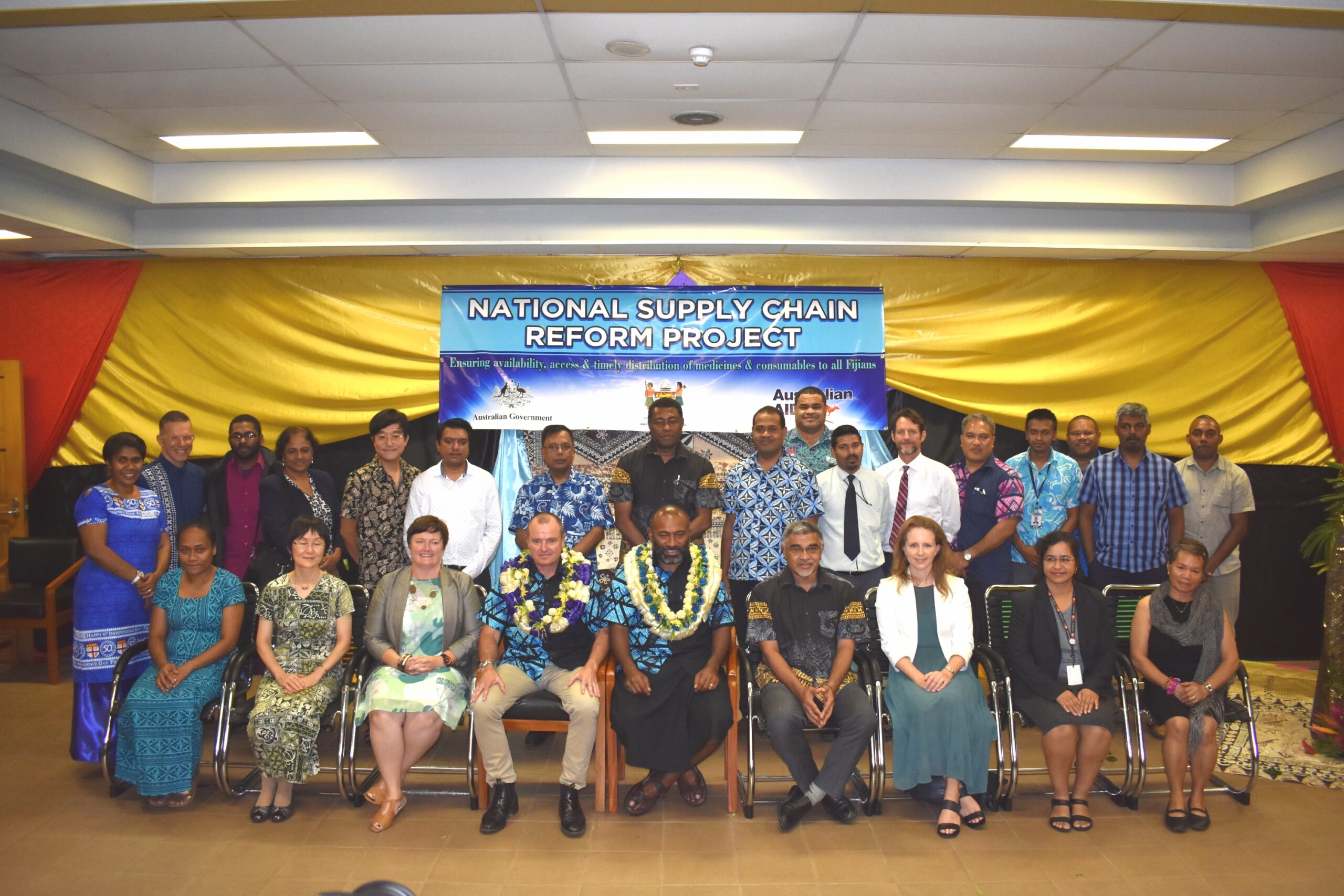Last Updated on 4 years by Publishing Team

STATEMENT BY THE PRIME MINISTER HON. VOREQE BAINIMARAMA ON COVID-19
I’ve just left our coronavirus war room at the Ministry of Health and Medical Services, where we start every day with a briefing from our country’s top medical minds and viral specialists, who, together with the World Health Organisation, keep us up-to-date on the global COVID-19 pandemic and the situation on the ground here in Fiji.
As of today, the 24th of March, our first three confirmed cases of COVID-19 are in stable condition. All remain safely isolated from the public.
Early this morning, we confirmed a fourth case of COVID-19 in Fiji. This patient is not related to our first three cases. He is a 28-year-old Fijian man who arrived back into the country on Saturday from Australia.
When he left that flight, he was not showing any symptoms of COVID-19. Regardless, he was advised by health officials at the airport to go straight home and self-quarantine for 14 days.
It appears this gentleman did everything right. He went from the airport straight to his flat in Suva, where he immediately self-quarantined. That Sunday night, while he was still self-quarantined, he developed mild symptoms –– a sore throat, and then a cough. Recognising the warning signs of COVID-19, he contacted the Ministry of Health via the dedicated hotline, and a rapid response team was immediately dispatched to his home, where he was examined and tested. The patient then remained in self-quarantine until the test for COVID-19 returned positive.
After the test was confirmed, an ambulance transported the patient securely and hygienically to our Central Division isolation ward at Navua Hospital. Separate ambulances then transported all members of his household to the Navua Hospital isolation ward, even though their contact with this patient was limited and they currently display no symptoms. They all remain isolated at the hospital, where they pose zero risk to the public.
There were 26 other people on the same flight –– flight FJ 1916 –– from Sydney to Nadi on Saturday, March 21st. Fiji Airways was practicing safe distancing on the plane, spacing out passengers through their strictly-enforced assigned seating. Because of those safety measures, only a handful of others –– two other passengers and the three cabin crew who serviced his cabin –– risked exposure. Regardless, all other passengers remain in self-quarantine for a 14-day period.
While the risk of transmission from this case is low, our contact tracing teams are currently identifying every single person in Fiji who may have had direct contact with the patient –– down to the taxi driver who drove him from Nadi Airport to Suva.
Fiji Airways has already announced they are cutting their international flights by 95%. This passenger was on one of the final flights from Sydney to get Fijians back home. From tomorrow, there will be no more scheduled passenger Fiji Airways travel into or out of Fiji until further notice.
This case is very different from the first case of COVID-19 we detected in Lautoka. In that case, the patient was showing symptoms and failed to place himself in self-quarantine. That is the reason why we had to lockdown the Lautoka confined area. It is why the area will remain locked down for at least the next nine days.
I want to reiterate again: From everything we know so far, this new patient did everything right. He followed instructions, he was educated on the symptoms, and –– most importantly –– he was diligent in protecting his loved ones.
Through this young man’s actions, it was clear that he cared for his family, cared for his community, and cared for his country. His caution and patriotic sense of duty stands in contrast with the careless behaviour of others we’ve seen in Fiji and around the world.
Given this case is vastly different from our first three cases, we will not be shutting down travel into and out of Suva in the same manner that was required for the Lautoka confined area.
Here’s what needs to be done from today: All Fijians, everywhere in Fiji, should avoid all non-essential travel. That means no Fijian should travel from their home unless absolutely necessary. And they certainly should not be travelling around the country, across divisions or to different islands.
Children should stay at home at all times. The elderly should stay at home at all times. Breadwinners who can go to work should go home straight after. For everyone else, every move you make should be for your own health or the health of others. You can go out to get food, get medicine, take out money or access another essential service. It’s also okay to exercise safely outdoors, so long as you maintain a safe distance from others. But do not visit friends or family unless absolutely necessary. Do not host parties. Do not needlessly linger, and do not mingle with strangers.
This all may sound extreme, but every Fijian needs to understand exactly what we’re up against here. Not in 100 years has the world seen a health crisis this severe. Fiji –– along with every nation on Earth –– is at war with coronavirus, and every Fijian needs to plant themselves squarely on the side of human wellbeing. These are not normal times, and we cannot go about our day-to-day lives as if everything is normal. That mentality –– that ignorance of the reality on the ground and the severity of this disease –– will get people killed.
If one person is exposed to this virus, and ignores our restrictions, they could run around infecting any and everyone they come into contact with. If all those newly-infected people do the same, suddenly, we have a massive outbreak on our hands.
So, if the Ministry of Health has directed you to self-quarantine, do it. They’ll be calling you and checking in on you in-person to make sure you’re staying away from the public. Let me remind you what self-quarantine entails: For 14 days, you must stay in your home. During that time, you should avoid contact with other members of your household as much as humanly possible.
Our ban on gatherings of 20 people or more remains in full effect. Weddings, funerals, concerts, sporting events should all be cancelled. When it comes to people’s health, no event is more important than people’s lives. Remember, lives are priceless, plans can change.
There’s a reason I’m not delivering this message back in the usual cramped press room. I want to show you –– Fijians watching wherever you are – what it means to practice the concept of “social distancing” also known as “physical distancing” –– a term I actually prefer.
Physical distancing means exactly that; keeping your distance from all people at all times. Two metres to be exact. Right now, wherever you are watching this, stop, and look around. Make sure everyone around you is at least an arm’s length away. That is what it means to physically distance.
I don’t care if you’re in the heart of Suva or Lautoka, or in rural Vanua Levu or out in our maritime islands –– maintain that two metre distance as much as humanly possible. Act as if lives are at risk, because lives are at risk.
I’ve seen images going around of people standing in line and congregating in Suva and other urban areas. All of that ends today. If you need to get in line, space yourself out properly and keep two metres between you and everyone else. Queue with the diligence that you could cough or sneeze at any moment, and queue with the compassion that that person could be your grandmother. But even if you lack those traits, know that police officers will be enforcing these measures everywhere in the country.
But our officers cannot be all places at all times. We need every single Fijian enlisted in our nationwide effort to combat the coronavirus. If you see people violating these measures, tell them: Don’t be careless. Seriously, tell them to get their act together and respect everyone’s health. We need everyone’s eyes, ears and voices in this campaign. Lead by example in your own actions, and speak up when you see someone falling out of line. By helping us enforce the rules, you can help reshape Fijians’ social behaviour and save lives.
I’ve told restaurants to cut their seating and place a focus on take-away and delivery. If you run a business in an industry where remote work is possible, tell your workers to start working from home. We also highly discourage passenger travel to our outer islands. Shipping lines for freight will continue –– with increased bulk but decreased frequency –– to ensure food and other essential goods are supplied across our islands.
The same applies everywhere in Fiji. Food and other essential goods will continue to come into the country. We are food secure, there is no need to spend your savings in one frantic go at the supermarkets. We have been informed that some people who ran to the stores to buy up goods in a panic are now wanting to return their groceries to the supermarkets and shops –– that all goes to show how unnecessary, and foolish, the panic-buying was in the first place.
I’d also like to provide an update on the passengers and close contacts of our first patient who were mentioned in yesterday’s statement, on Monday, the 23rd of March. I asked that Fijians who were listed online would come forward and contact the Ministry of Health, and I’m happy to say that dozens have done so, and we’ve determined that more still have already left the country. Meanwhile, 37 still need to reach out to us. That updated list of names is posted on the Ministry of Health’s Facebook page.
My fellow Fijians, take comfort in knowing that we will continue to be transparent and forward with you as the situation unfolds, just as we have been from the beginning. Despite having just a handful of cases, we are acting quickly and decisively –– and our actions are guided by the advice of leading experts from Fiji and around the world. And we aren’t afraid to go further when goodwill isn’t enough; we will not repeat the same mistakes of other nations who did not take such bold measures so quickly.
Also know that we are doing everything in our power to keep you and your families safe; in return, I ask again for your full cooperation in this fight. Let your hearts and minds be guided by care for your country, and care for your fellow Fijian.
Wash your hands. Practice physical distancing. Sanitise your homes and offices. Wipe down your desks and tabletops. Not once, but often.
It boils down to this: Don’t be careless. Use this fourth case –– and the proper actions of this patient –– as an example. Learn from this gentleman –– how to be diligent, how to be compassionate –– and put those same values into practice in everything you do in your lives.
If you have recently travelled overseas, you should already be in self-quarantine. If you feel unwell, immediately contact the Health Ministry on one of these numbers:
In the Central Division call 2219905;
In the Eastern Division call 2219906;
In the Western Division call 2219907; and
In the Northern Division call 2219908.
I’ll now turn things over to Dr Aalisha.
Vinaka vakalevu. Thank you, and God bless Fiji.

